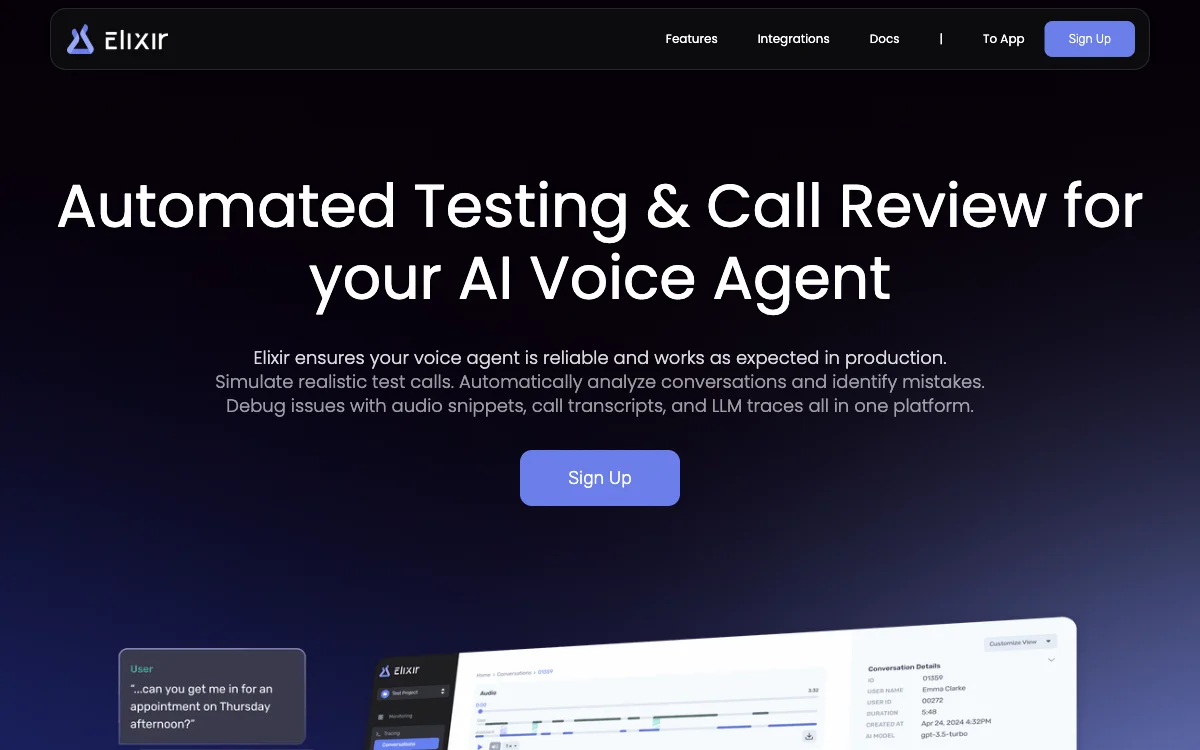Elixir Observability stands out as a comprehensive AI Ops & QA platform designed specifically for multimodal, audio-first experiences. It offers a suite of tools aimed at enhancing the reliability and performance of voice agents in production environments. With Elixir, users can simulate realistic test calls, automatically analyze conversations to identify mistakes, and debug issues efficiently using audio snippets, call transcripts, and LLM traces all consolidated in one platform.
The platform's monitoring and analytics capabilities allow for the tracking of call metrics and the identification of mistakes at scale. It measures agent performance across various dimensions, including interruptions, transcription errors, tool calls, and user frustrations, providing out-of-the-box metrics. Elixir also enables the detection of patterns between agent mistakes and user behavior, offering real-time anomaly detection and Slack notifications for critical concerns.
For debugging, Elixir provides detailed traces for complex abstractions such as RAG, Tools, Chains, and more. Users can play back audio snippets to hear user-agent dialogues and identify performance bottlenecks, speeding up the review process by focusing on specific call sections.
Elixir streamlines the manual review process with call auto-grading, allowing users to define use-case specific success metrics and scoring rubrics for their conversational systems. It automatically triages "bad" conversations to a manual review queue and facilitates human-in-the-loop feedback to improve auto-scoring accuracy.
The platform's testing and simulation features enable the simulation of thousands of calls to an agent for full test coverage, eliminating the need for manual testing. Auto-tests can be run every time a significant change is made, ensuring continuous reliability.
Elixir has garnered positive testimonials from industry leaders, highlighting its effectiveness as the only LLM observability product on the market that works well for voice-first products. Its integrations with various AI stack components, including LLM Providers, Vector DBs, Frameworks, and Telephony & WebRTC, make it a versatile choice for developers and businesses aiming to build reliable voice agents.

